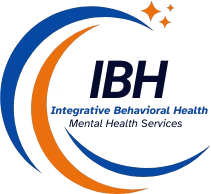ADHD Counseling Services

Understanding and Treating ADHD
What is ADHD?
ADHD is a neurodevelopmental disorder characterized by symptoms such as:
Inattention (difficulty staying focused or following instructions)
Hyperactivity (excessive movement or restlessness)
Impulsivity (acting without thinking about the consequences)
These symptoms often manifest in childhood but can persist into adulthood, affecting academic, professional, and social environments.
Signs and Symptoms of ADHD
ADHD symptoms can vary widely but typically include:
Inattention: Difficulty sustaining focus, frequent careless mistakes, or being easily distracted.
Hyperactivity: Fidgeting, an inability to sit still, or excessive talking.
Impulsivity: Interrupting others, difficulty waiting turns, or making hasty decisions.
If these behaviors consistently interfere with daily life, a professional assessment is recommended.
Treatment Options for ADHD
Managing ADHD involves a combination of therapeutic approaches tailored to individual needs. Key treatments include:
Medication
Medications like stimulants (e.g., Adderall, Ritalin) and non-stimulants can effectively reduce ADHD symptoms by improving brain function and focus. Consultation with a healthcare provider is essential to determine the right medication and dosage.
Behavioral Therapy
Behavioral therapy helps individuals develop skills to manage symptoms, such as:
Time management
Organizational skills
Emotional regulation
Parent Training
For children with ADHD, parent training programs can provide techniques to:
Reinforce positive behavior
Set clear expectations
Maintain consistent routines
Cognitive Behavioral Therapy (CBT)
CBT addresses negative thought patterns and teaches strategies for:
Problem-solving
Reducing procrastination
Improving self-esteem
Lifestyle Adjustments
Simple lifestyle changes can complement other treatments, such as:
Regular physical activity to reduce hyperactivity and improve focus
Healthy sleep habits for better emotional regulation
A balanced diet rich in nutrients to support brain health
Coping Strategies for ADHD
Living with ADHD requires ongoing effort and self-awareness. Here are practical strategies for managing symptoms:
Use Tools and Apps: Utilize planners, reminders, and apps designed to enhance productivity.
Break Tasks Into Smaller Steps: Focus on completing one small step at a time to prevent overwhelm.
Establish Routines: Consistent daily routines reduce distractions and improve focus.
Seek Support: Join ADHD support groups or work with a coach to stay motivated.
ADHD in Adults vs. Children
ADHD presents differently in adults and children. While children often display hyperactivity, adults may experience:
Difficulty managing responsibilities
Relationship challenges
Chronic procrastination
Recognizing these differences is crucial for tailored treatment.
The Importance of Professional Support
Seeking professional help is a critical step in managing ADHD. Therapists, psychiatrists, and counselors can provide personalized care plans, ensuring a comprehensive approach to treatment.
ADHD is a manageable condition with the right combination of medication, therapy, and lifestyle adjustments. Whether you or a loved one is navigating life with ADHD, remember that support is available, and progress is possible.
For personalized ADHD treatment, consider contacting IBH’s expert team. Their tailored therapy services provide individuals with the tools and support they need to thrive.
